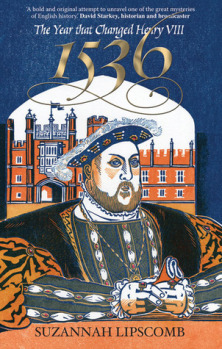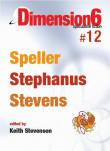To Put It Bluntly… Jane Seymour Is Boring!:
Many people accuse Jane of being a hypocrite. She presented herself as a quiet and demure Tudor wife, yet she also sat back and waited until her husband had executed her mistress before marrying him herself. Poor Jane Seymour simply cannot win! She can’t be blamed for being boring one minute, and then cunning the next.

Anne Boleyn’s Portrait
We will never know for sure the true extent of Jane’s involvement in Anne’s downfall. Many historians like David Starkey, believe that Jane used her growing influence over Henry to turn his mind against Anne. If Jane did do this, then she was doing no more than what Anne did to her royal mistress Catherine of Aragon. The only difference is that Anne openly paraded her contempt towards Queen Catherine and her daughter, whilst Jane was much more subtle in her intentions. Even after taking Anne’s disdainful actions against Catherine and Mary into consideration, people still feel immense respect for her. Surely then, if Anne could be ‘forgiven’ for bringing down a great queen then Jane Seymour can be ‘forgiven’ too?
As I mentioned before, Anne Boleyn is widely remembered for her power and influence during her courtship and marriage to King Henry. She used her position to promote religious reform throughout England, and helped to trigger England’s break with the Pope in Rome. Anne used her passionate nature and outspokenness to good affect, because she brought about great changes to the country’s future. Her talent to guide many of Henry’s decisions is further viewed as proof of her compatibility with the King. No other wife of King Henry VIII was proven to influence as much as Anne did – including his supposedly ‘favourite’ wife Queen Jane.
It is not so well known, but Jane actually demonstrated great potential in voicing her opinions to her royal husband, (even if it provoked his anger). As Alison Weir stated: “Jane nevertheless did speak out for the things that she considered important, and one was the welfare of the King’s daughter the Lady Mary, whom he had bastardised and whom he had literally cast aside… and the other was the Reformation. Jane was a traditional Catholic. She hated the closure of the monasteries, and she begged Henry on her knees to save them. Henry turned around and told her to shut her eyes and not to say anything more, because the last Queen had died for meddling too much. …I think that there is more to Jane Seymour than meets the eye”.

Jane Seymour’s Portrait
Jane may not have brought about such drastic transformations to England as her rival did before her. Whenever she did make a stand against Henry’s actions towards the Lady Mary and the Reformation, she was quickly forced back into her ‘place’ without really achieving anything at all. (I think anyone would be fearful of the fate met by Henry’s first two wives, and would do anything to avoid it)! Furthermore, Jane would have learnt from Anne’s mistakes. She was probably clever enough to know when to back down and not to push Henry too far. She had seen for herself the consequences of it backfiring.
Another interesting theory which I find extremely persuasive, is Dr. Suzannah Lipscomb’s suggestion that the Henry which Jane married, may have been a completely different man to the one Anne Boleyn once knew. In January 1536, Henry suffered from a traumatic jousting accident, which Lipscomb argues had inflicted possible physiological damages. Perhaps the Henry which Jane had to contend with, was incapable of being dominated by others as much as before? It was certainly after that incident that the ‘tyrannical’ King Henry emerged. If Lipscomb’s theory is true, then Jane would have found it impossible to influence Henry’s mind due to no fault of her own.

‘1536: The Year That Changed Henry VIII’ by Suzannah Lipscomb
Jane demonstrated the potential to speak her mind early in her reign, so can you imagine how successful she would have been after the birth of Prince Edward? On 12th October 1537, Jane’s position as Henry’s ‘true’ wife was well and truly cemented after the birth of her son. Henceforth, Henry would always look upon his third marriage as valid in the eyes of God. He would never dare to replace the mother of his heir! With so much power, Jane would have possessed much more confidence in influencing Henry’s policies. What’s more, as mother to the future King of England Jane may have been more successful than Anne Boleyn in impacting upon Henry’s future policies…
It is therefore I great shame that Jane did not live long after the birth of her son. One 12 days after Prince Edward’s celebrated birth, Jane contracted puerperal fever and tragically died. She would never experience the thrill of receiving Henry’s eternal adoration; nor would she enjoy the security of her position as Queen of England for the rest of Henry’s reign. Of course, we can only speculate about how powerful Jane would have become had she lived longer. What I think we can say for sure however, is that this woman was far from ‘boring’, as she shared an outspoken mind and a passion for change similar to her predecessor.
The Queen In Heaven & The Phoenix:
After hearing about the death of Anne Boleyn, Archbishop Thomas Cranmer was one of the few mourners of her passing. He solemnly stated that: “She who has been the Queen of England on earth will today become a Queen in Heaven.’ Many people today – including myself – believe that this is a rather fitting tribute for a great lady. Jane Seymour was also mourned for her tragic death. Her grave once bore the beautiful inscription: “Here lieth a Phoenix, by whose death; Another Phoenix life gave breath: It is to be lamented much; The world at once ne’er knew two such.”
I think it’s amazing that Anne’s memory is now highly regarded amongst modern society, after her own husband attempted to disgrace and erase her memory. In contrast, Henry immortalised Jane’s goodness to the world for the rest of his life. However, fast-forward 480 years and Jane is often disregarded in favour of her one-time mistress.
Anne suffered the most brutal ending and humiliation from a man who would professed undying love for her. She was the English queen who helped transform English history, demonstrate the power of women during a male-dominated world and who stuck to her principles during the most trying of times. Jane on the other hand, is referred to as the ‘lucky’ wife rather than the ‘true’ wife. Dan Jones summed it up perfectly, when he expressed that: ‘… relatively compared to two wives who had gone before her, this was a fairly straightforward wife for Henry. She did the most important thing, which was to provide a heir. And then she died before he got bored of her, which I sort of sense… he might have done.’ I’ve come across many people who share this opinion.

The Family Portrait – Depicting Henry VIII, Jane Seymour and their son Prince Edward
What people tend to forget, is that even though their deaths are drastically different both deserve equal amounts of sympathy. Jane Seymour endured three days and nights in the most agonising pain, constantly hoping and praying that the drawn-out pain would bring about the birth of a boy. After her prolonged struggle, she would later contract a deadly fever which would kill her in 12 days. She would never enjoy her triumph to the full. She would not be able to put her increased power into full effect. But most importantly, Jane would endure a horrible death, with the knowledge that she would never see her son.
There is no denying, that Anne Boleyn died to most tragic and heroic death. However, just because Jane didn’t die a traitors’ death and gave birth to a male heir, does not take away from the sadness and hardship of Jane’s passing. After taking all of this into consideration, it surprises me that even in death Henry’s second and third wives don’t receive equal sympathy and respect.
Conclusion:
Perhaps Anne Boleyn and Jane Seymour will always been immortalised for their staggering differences. I still don’t deny that they varied drastically in temperament, appearance and fates.
Yet I often stop and wonder as to whether these once great rivals, ever looked upon the other as an equal? Both women achieved what they sought to gain; both gambled on winning the love of Henry VIII; both queens succeeded and failed in influencing Henry’s mind, and both destroyed the influence of their royal predecessor.
Most importantly, I believe that neither Queen Anne or Queen Jane would appreciate being remembered as either victims or villains of their time. Both of them had to endure the consequences of being married to one of the tyrannical kings in history. The only difference is that one of them lost Henry’s love, whilst the other one cemented it. It is the merely the manner of their deaths and their impact of their union, which ultimately influenced people’s opinions of these rivals nearly 500 years on.
Yet as we have seen, in the grand scheme of things this should not define the brilliance of Anne Boleyn or Jane Seymour. What Anne is hailed for, Jane should also be praised for. All in all, by exploring the talents and accomplishments which both women shared, it is revealed that Henry’s second and third wives really were ‘two peas in a pod’.
DAVID STARKEY:
‘Six Wives: The Queens of Henry VIII’ by David Starkey – https://www.amazon.co.uk/Six-Wives-Queens-Henry-VIII/dp/0099437244/ref=sr_1_7?s=books&ie=UTF8&qid=1507751099&sr=1-7&keywords=david+starkey
‘The Six Wives of Henry VIII by David Starkey DVD’ – https://www.amazon.co.uk/Six-Wives-Henry-VIII-DVD/dp/B000RWDXZ0/ref=pd_cp_74_1?_encoding=UTF8&psc=1&refRID=J291EY5T1ZVD47VRXESD
SUZANNAH LIPSCOMB:
‘1536: The Year That Changed Henry VIII’ by Suzannah Lipscomb – https://www.amazon.co.uk/1536-Year-That-Changed-Henry/dp/0745953328/ref=sr_1_5?s=books&ie=UTF8&qid=1507750940&sr=1-5&keywords=suzannah+lipscomb
SUZANNAH LIPSCOMB & DAN JONES:
‘Henry VIII and his Six Wives by Suzannah Lipscomb and Dan Jones DVD’ – https://www.amazon.co.uk/Henry-Wives-presented-Suzannah-Lipscomb/dp/B01EN69T30/ref=sr_1_1?s=dvd&ie=UTF8&qid=1507751003&sr=1-1&keywords=suzannah+lipscomb
‘Dan Jones and Suzannah Lipscomb Discuss Jane Seymour’ – https://www.youtube.com/watch?v=IgE8M8sPmXY
ALISON WEIR:
‘The Six Wives of Henry VIII’ by Alison Weir – https://www.amazon.co.uk/Six-Wives-Henry-VIII/dp/0099523620/ref=sr_1_14?s=books&ie=UTF8&qid=1507750876&sr=1-14&keywords=alison+weir
‘Alison Weir Discusses Jane Seymour’ – https://www.youtube.com/watch?v=olEyWQK6SmQ
Share this:





